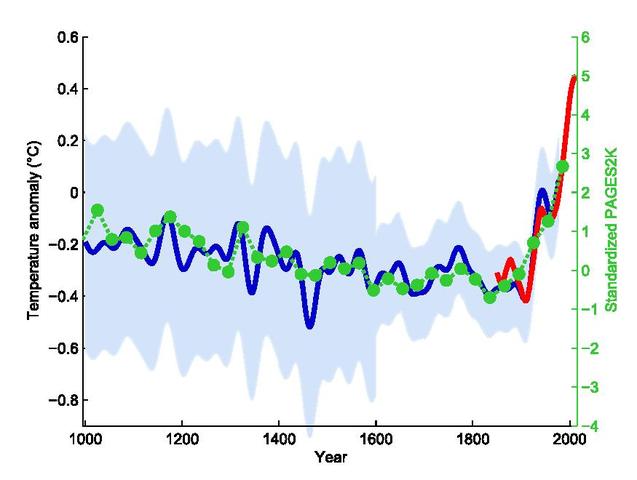Σε σκαπανείς κλιματικούς επιστήμονες το βραβείο “Nobel” για το περιβάλλον.

Pioneers of climate science win “Nobel” prize for environment
Warren M. Washington, the father of climate modeling, and Michael E. Mann, who was vilified by fossil fuel companies and politicians for his work on climate change, have been awarded 2019 Tyler Prize for Environmental Achievement — often regarded as the “Nobel prize for Environment.”
Computers only truly entered our lives a couple of decades ago, but it’s hard to imagine life before them — especially in science. Processing power has enabled us to gain a much better understanding of the world around us, opening incredible new avenues for research. But before this happened, in the 1960s, a young African-American scientist named Warren M. Washington worked to develop climate models of the Earth.
Washington recognized how important computers would be, and together with colleagues, he developed one of the first-ever true climate models of the Earth. As the calculators improved, he continued his work, adding even more parameters to the model like oceans, sea ice, and rising CO2 levels. This model was one of the first major indicators that increasing CO2 levels would lead to global warming.
“Dr. Washington has been a pioneering climate scientist for over 40 years and has been at the leading edge of climate model development,” said John Shepherd, former Deputy Director of the Tyndall Centre for Climate Change Research. “Much of what is known about the Earth’s climate system and climate modeling is directly traceable to the lifelong work of Dr. Washington.”
You could hardly imagine a more deserving recipient than Washington, whose name has become synonymous with climate modeling.
“Dr. Washington literally wrote the earliest book on climate modeling,” said Shirley Malcom, Director of Education and Human Resources at the American Association for the Advancement of Science (AAAS). She is referring to his seminal work, An Introduction to Three-Dimensional Climate Modeling, that was written with Dr. Claire Parkinson.
Meanwhile, Michael Mann struggled with other problems. He was one of the first pioneers to incorporate climate proxies such as tree rings, lake sediments, and ice cores into planetary climate models. Along with colleagues, he also produced what is quite possibly the most controversial (and one of the most important) graphs in the world: the “hockey stick graph.”

The hockey stick graph was strongly attacked by fossil fuel lobby groups, which disputed the methodology and results. As a result, Mann was subjected to intense scrutiny, as well as blistering political and legal attacks — from which he escaped unscathed.
However, Mann didn’t retreat inside the lab: instead, he became a public advocate of good science, communicating the existence of climate change and the need to address it as soon as possible. In a 2015 interview with ZME Science, Mann discussed the “powerful vested interests” opposing the acknowledgment that climate change is happening.
“Powerful vested interests have spent tens of millions of dollars in the most expensive disinformation campaign in human history — the campaign by fossil fuel interests to confuse the public and policymakers about the reality and threat of human-caused climate change,” he said at the time — and he has not changed his mind since.
His contribution to the field, both as a scientist and as a communicator, cannot be overstated.
“Professor Mann did not choose the easy way out. For his courage in the face of this challenge, Mike Mann is not just a great scientist, but also a hero,” concluded Prof. Naomi Oreskes, science historian and author of the book Merchants of Doubt.
The two will deliver a public lecture on their work at the UCSF Mission Bay Conference Center on May 2, and will officially be awarded the prize a day later, on May 3rd.
12 February 2019








